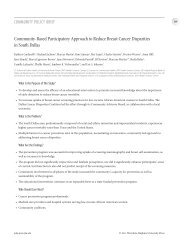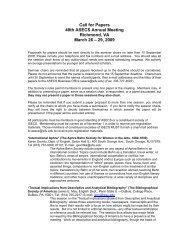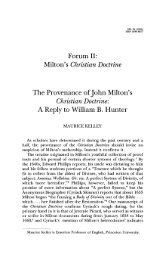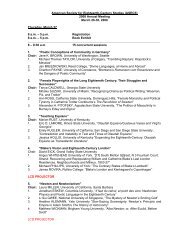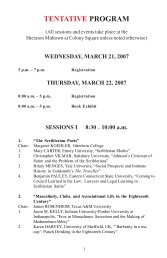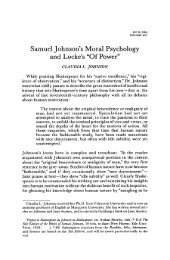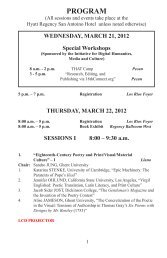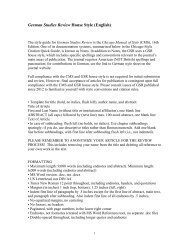Fall 2008 - The Johns Hopkins University Press
Fall 2008 - The Johns Hopkins University Press
Fall 2008 - The Johns Hopkins University Press
You also want an ePaper? Increase the reach of your titles
YUMPU automatically turns print PDFs into web optimized ePapers that Google loves.
<strong>The</strong> Moguls and the DictatorsHollywood and the Coming of World War IIDavid WelkyIn this fresh look at moviemaking during the Great Depression, DavidWelky examines Hollywood’s response to the rise of fascism and the beginningof the Second World War. Through innovative analysis of hundredsof movies—including <strong>The</strong> Dawn Patrol, Goodbye, Mr. Chips, and Sergeant York—Welky traces the shifting motivations and arguments of the film industry,politicians, and the public as they negotiated how—or whether—the silver screen should portray Nazism, depict conflict overseas, promoteAmericanism, and support President Roosevelt’s rearmament efforts.Hollywood, Welky argues, was a primary player in the debate between interventionistsand isolationists. <strong>The</strong>se competing groups vied for influence andcontrol over the message Hollywood offered the public—either scorning itfor being too timid or attacking it for being too aggressive. <strong>The</strong> national debatereached a fever pitch in September 1941, when isolationists in the U.S.Senate staged widely publicized hearings, accusing the movie industry of warmongering.Nazis arrest hunter Alan Thorndike(Walter Pidgeon) before he can assassinateAdolf Hitler in Fritz Lang’s Man Hunt. Courtesyof the Academy of Motion Picture Arts andSciences Margaret Herrick Library.While prewar Hollywood often reflected the principles of the Roosevelt administration,it also sometimes outpaced the cautious and politically astute president.Providing Americans with the psychological preparation they needed toenter World War II, popular movies familiarized audiences with the wartimeexperience, offered definitions of patriotism and Americanism, and establishedthe fundamental distinctions between democracy and dictatorship.Welky’s depth of research and focused, analyticalapproach will be appreciated by historiansas well as film buffs.“<strong>The</strong>se are fresh retellings of old sidebar legends . . .<strong>The</strong>re have been other works that treat this area, butfew match the quality of interweaving the worlds ofmovies, diplomacy, and the temper of the times (especiallyas seen in the minds of the ‘moguls’).”—Thomas Cripps, professor emeritus, Morgan State<strong>University</strong>December 448 pages 6 x 918 halftones978-0-8018-9044-4 0-8018-9044-6$45.00(s) / £24.00 hcDavid Welky is an assistant professor of historyat the <strong>University</strong> of Central Arkansas, the authorof Everything Was Better in America: PrintCulture and the Great Depression, and coauthorof Charles A. Lindbergh: <strong>The</strong> Power and Peril ofCelebrity. He has also published articles in Film& History and Film Quarterly.American History / Cinema StudiesTHE JOHNS HOPKINS UNIVERSITY PRESS www.press.jhu.edu 28



